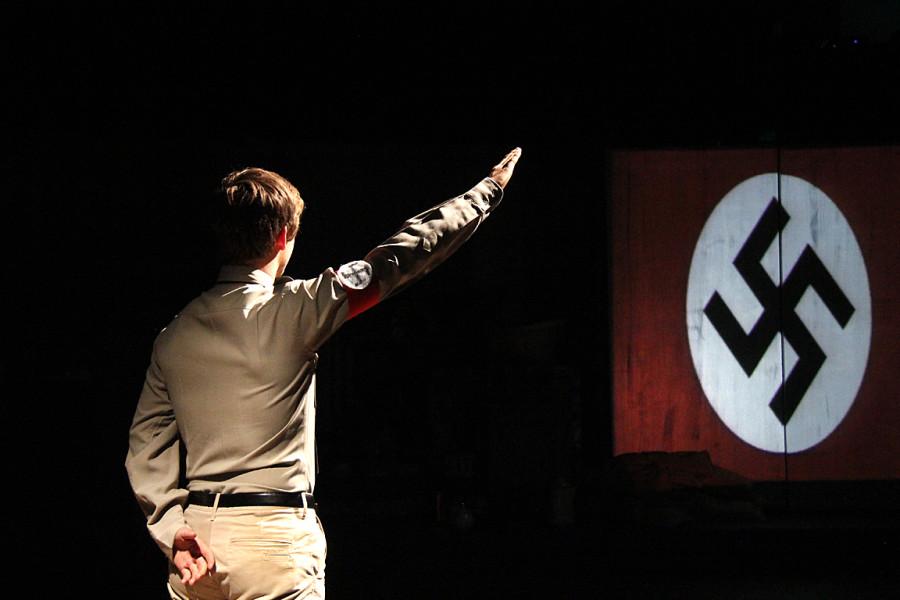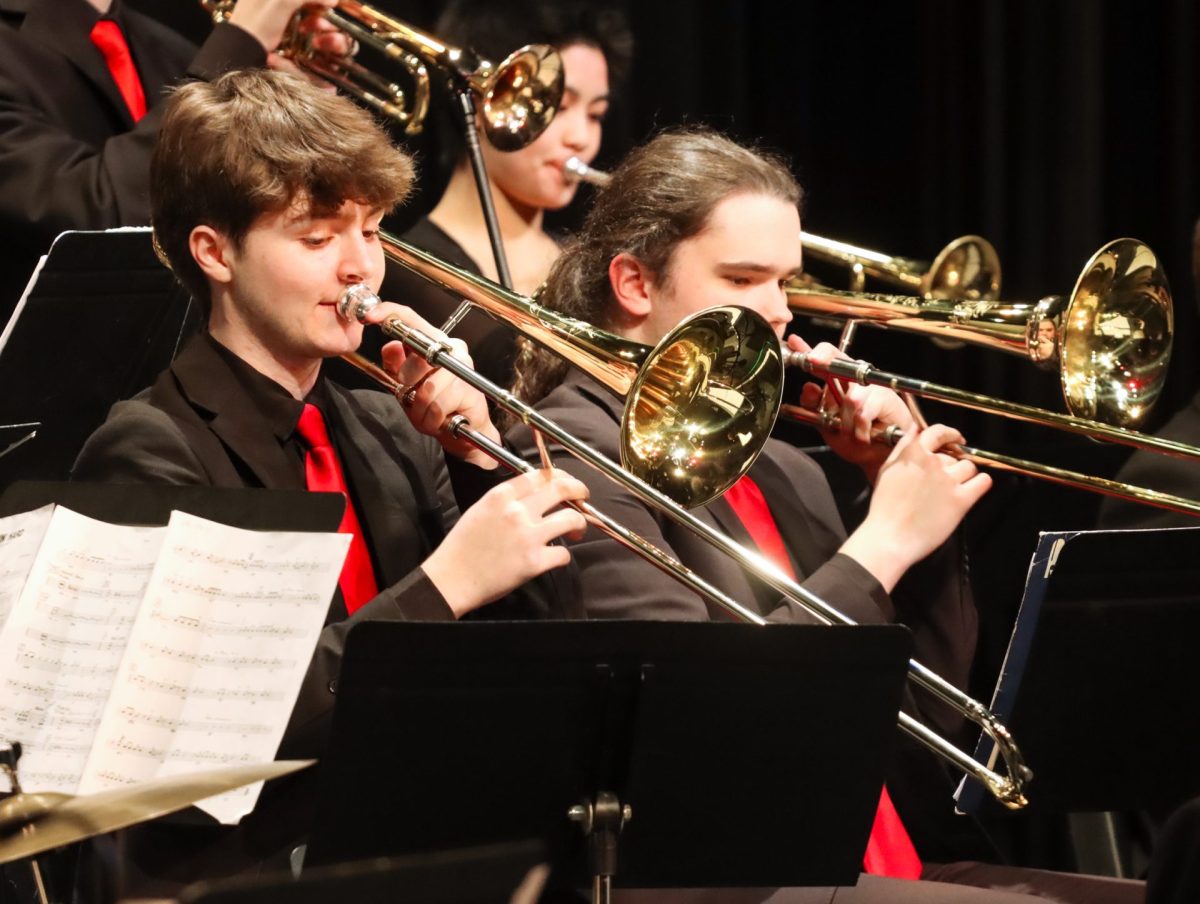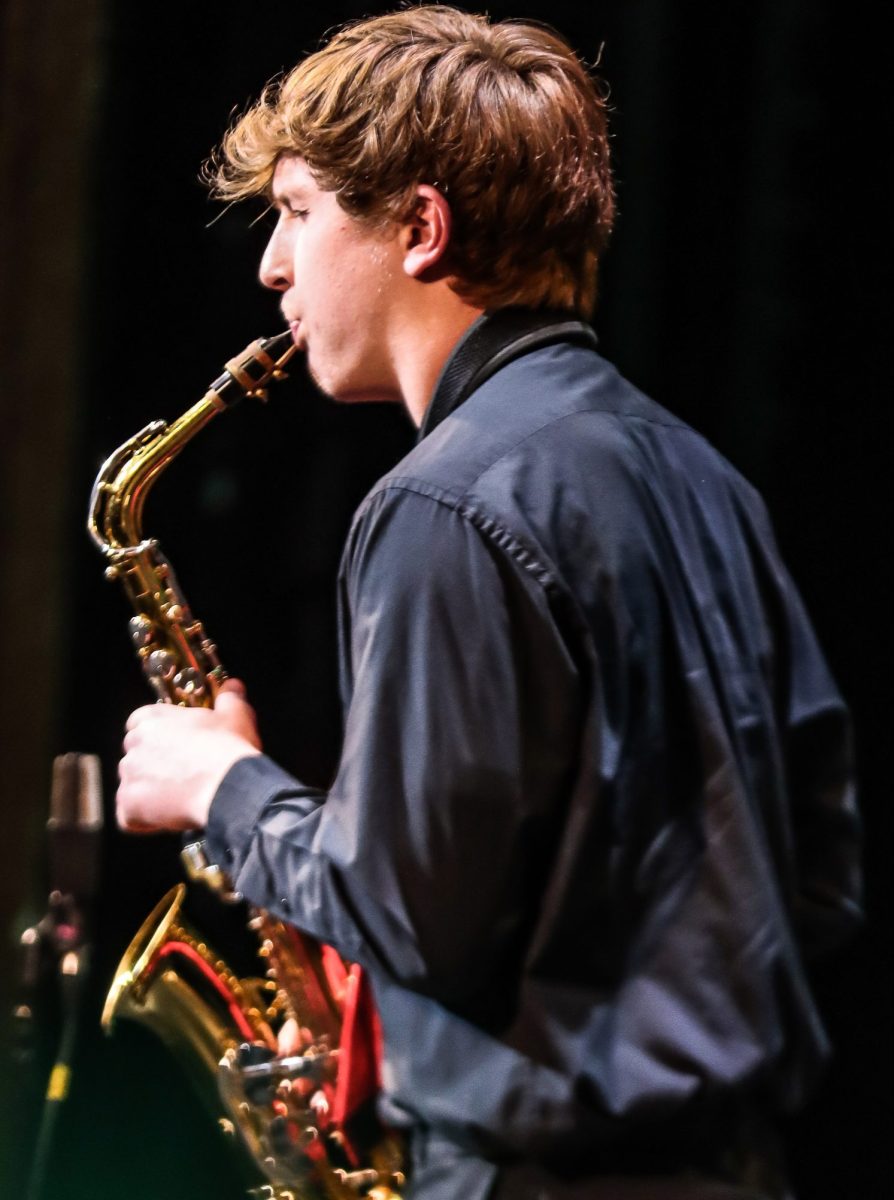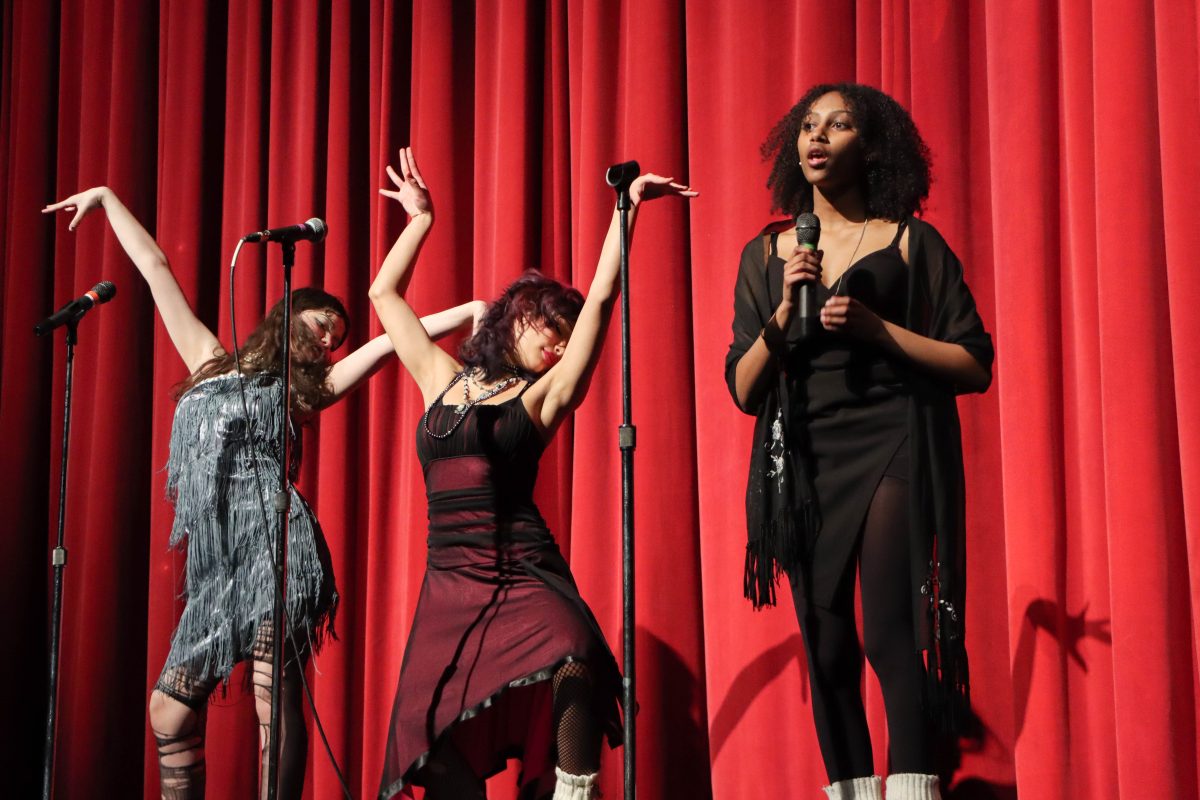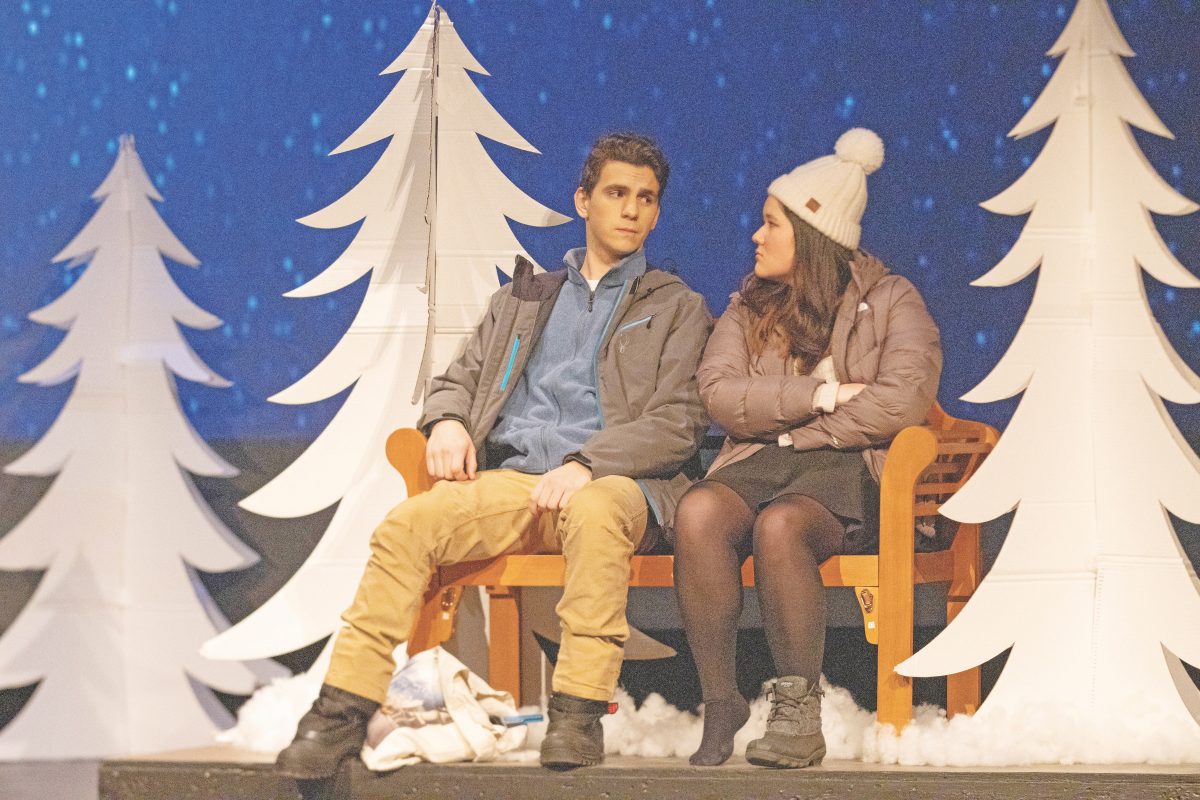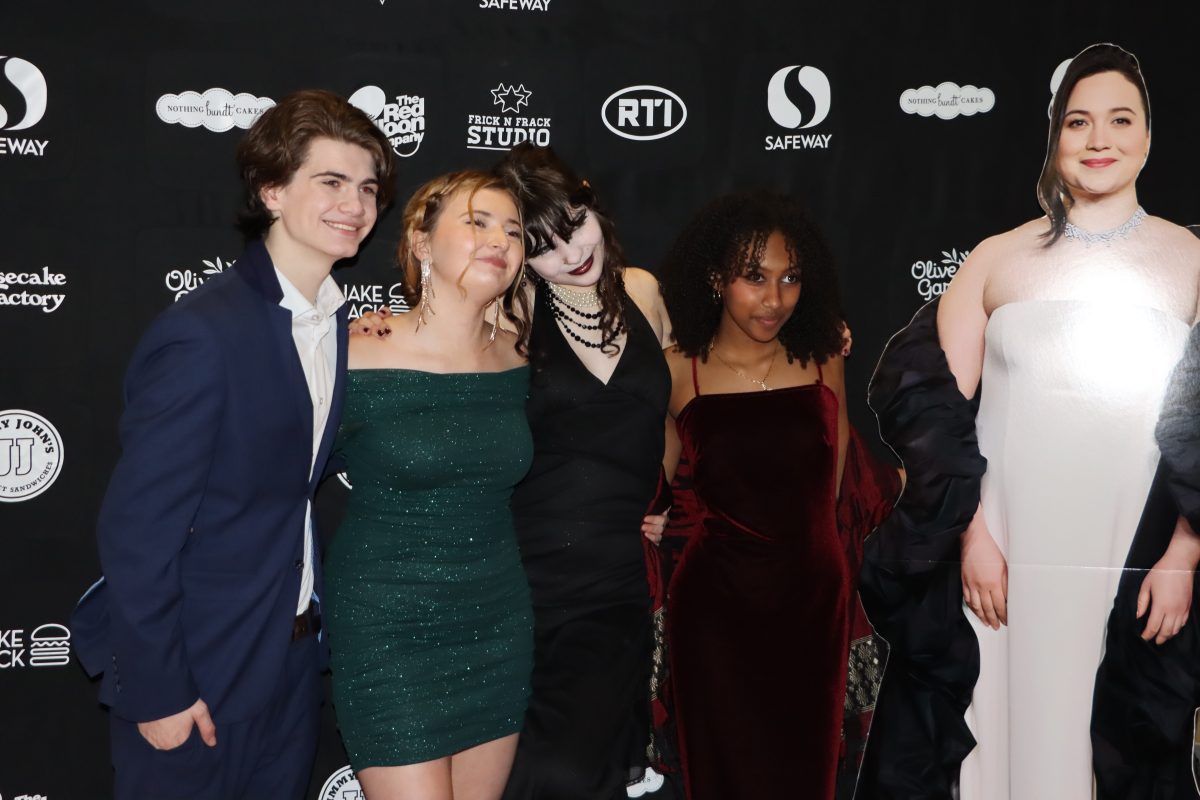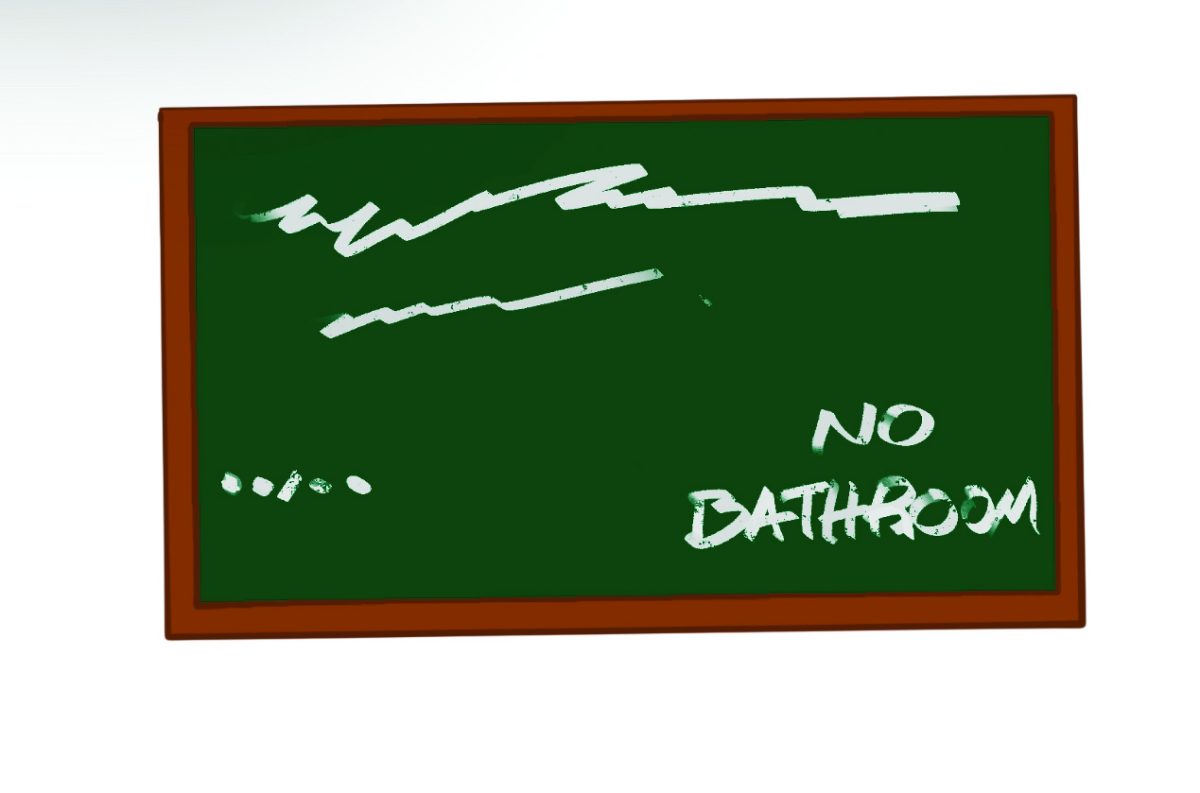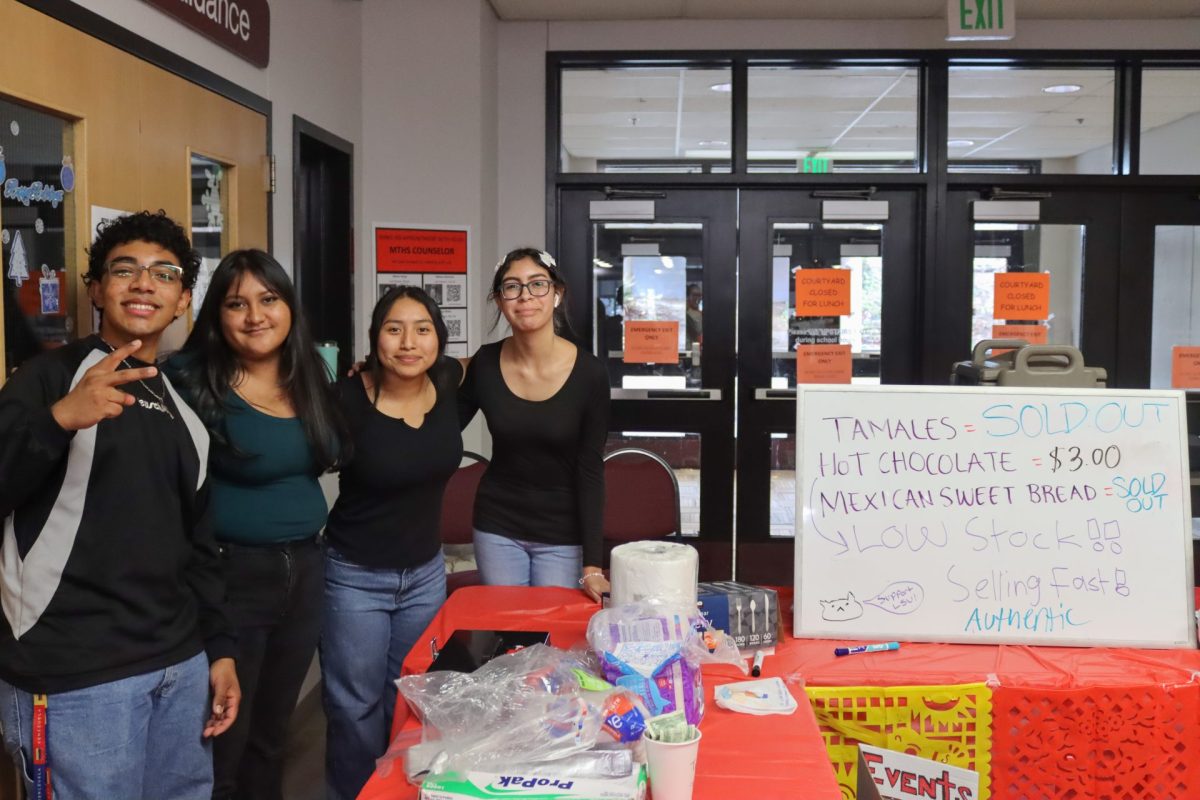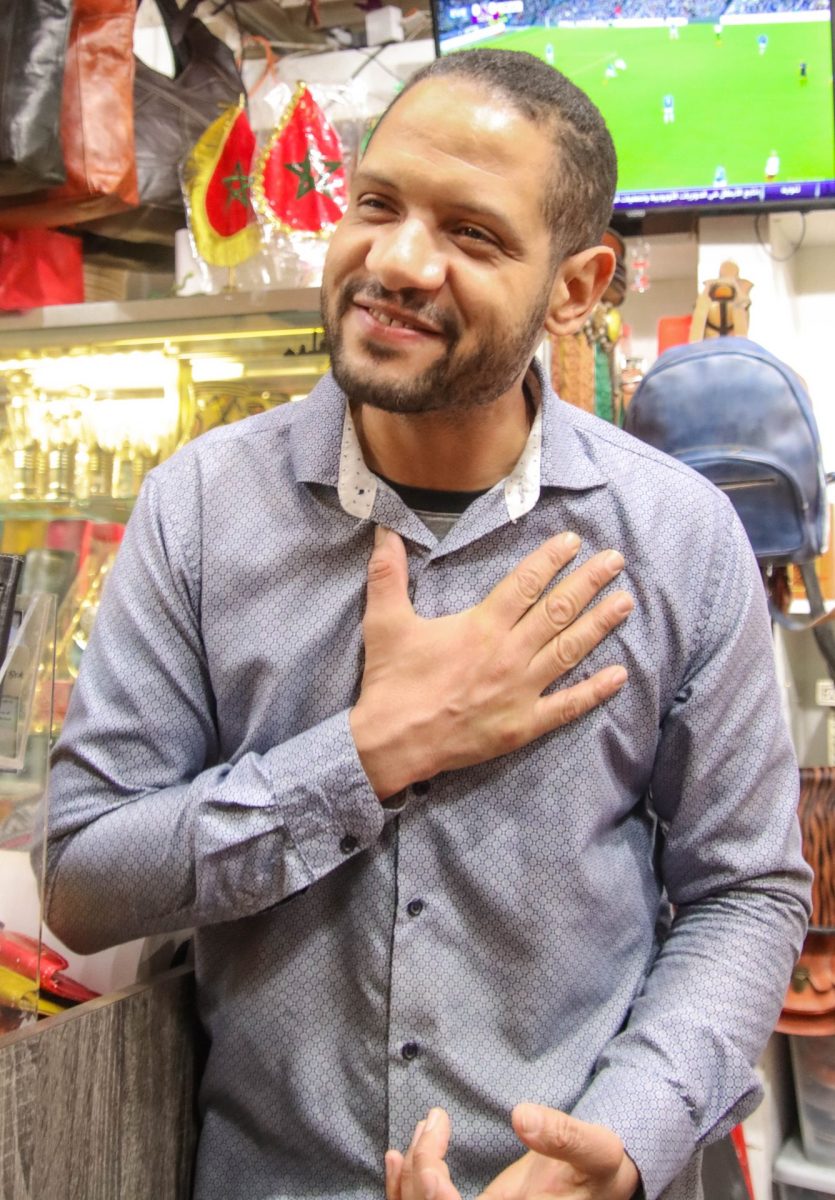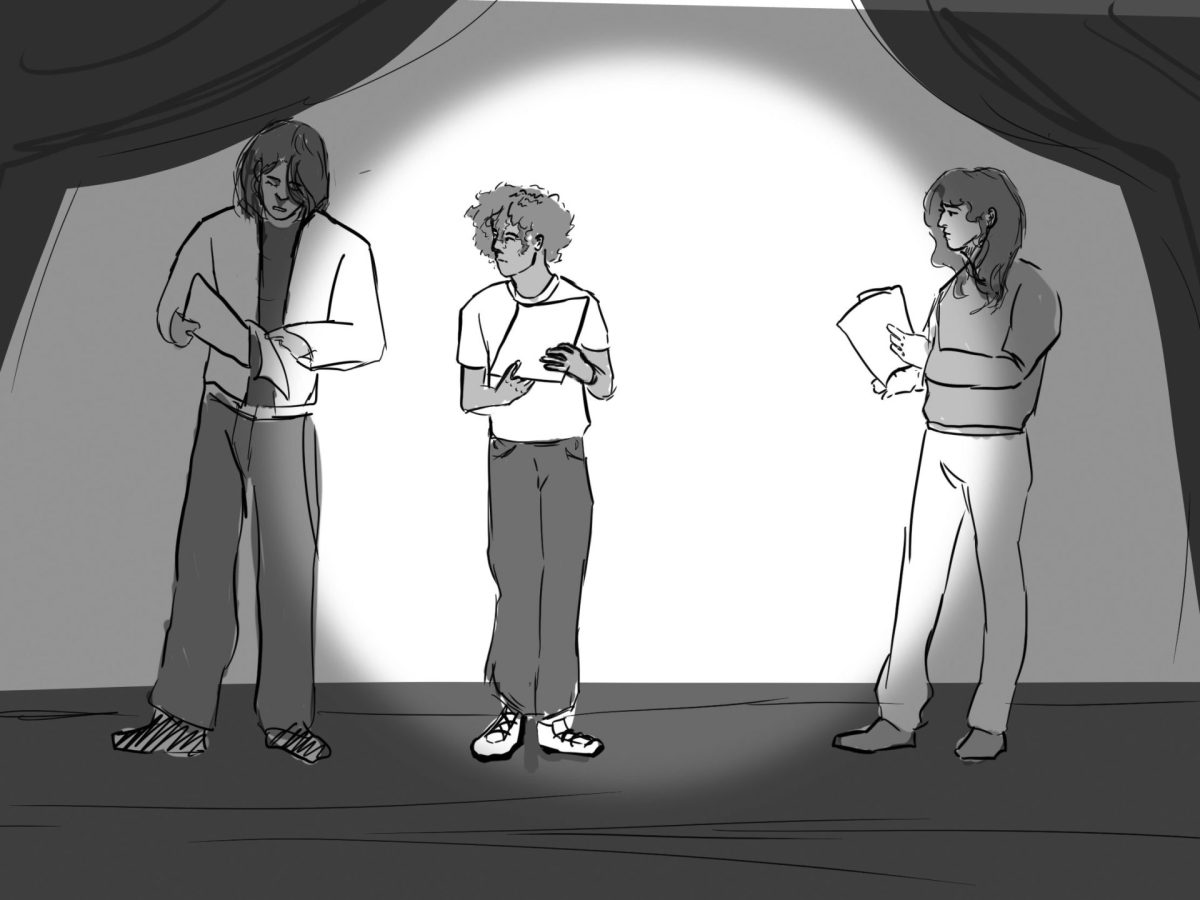With one last performance left on the books this year, the drama department went out on a sad but triumphant note. They decided to deliver a production with a historically revealing and emotionally evoking play covering (in depth) the stories of a few Jewish people, namely Anne Frank, Helmuth Silberberg and Eva Geiringer, and all of their struggles in Germany during the Holocaust.
The play was titled “And Then They Came For Me,” and was performed on May 28, 29 and 30 at 7 p.m. with a student matinee performance at 1:45 on May 28. It was a unique and slightly depressing play, one that brought the horrors of reality right in front of you and showed some of the differing perspectives of those involved in the Holocaust. This was a great way of supplying the audience with food for thought.
In terms of the actual play, for starters, the prospect of doing four shows in three days isn’t an easy one, especially with such an emotional, heavy hearted and serious play at hand.
“Emotionally, if the lines get you [then] it’s very exhausting,” junior Tyler Grabarczyk said.
The stage format was unique for this play. The drama department used a thrust stage, where the seating was on the actual stage, surrounding the performance area on three sides. The fourth side was where the scenery and props were located, and right in the center was where the actors performed up close and personal to the audience.
While this wasn’t the first time the drama department has used this type of stage, using such a different stage was a challenge in many ways, from how the tech aspects were managed to how the actors had to address the audience.
“[The actors] have to constantly be feeding information to the three sides, but you have to make it look natural so that it doesn’t seem awkward for the audience to watch you as you perform,” drama department director Jeannie Brzovic said.
And Then They Came For Me was chosen due to its insight into the Holocaust, a subject which correlates with what a lot of students are learning in class at this time of the school year.
The play started with a member of the Nazi Hitler Youth, played by Taron Castleton, who introduced himself and explained the measures taken to train kids from a young age, even as young as seven-years-old, to raise them into the ranks of serving the Führer. It’s an important perspective that continually pops up throughout the play, showing how kids were having their minds corrupted from an early point in life.
The play continues by telling the compelling stories of Eva Geiringer, Helmuth (Ed) Silberberg and Anne Frank, which was done in a multimedia fashion. There was a lot of theatre tech involved, with lights changing constantly, a multitude of sound effects and a projector showing bits and pieces of an interview with the real Eva and Helmuth sharing their stories about the Holocaust.
“This [play] had extra challenges that normal shows that aren’t multimedia based wouldn’t have,” stage manager and senior Emily Davidson said.
And as mentioned before, the tech portion of the show was intensive and let me remind you, the tech portion is critical in its own respect, considering it’s what creates the atmosphere and environment of the play. There were many difficulties due to the style of the play and the stage used.
“The hardest part is that because I’m blind I can’t use the monitors we have set up in the house that we usually use so we can see the stage, because there’s a wall there,” Davidson said.
Altogether there was around 54 sound cues, 68 video cues and 500 light cues. Compared to the 19 cues in “The Importance of Being Earnest,” that’s quite a bit. From a theatre tech perspective, musicals require the most work and this play was considered a little less work than a musical, according to Davidson.
Eva and Ed’s stories begin in 1938 and go through 1944, from the rise of antisemitism in Germany to the extreme discrimination shown towards Jews, and then how the Jews were sent to concentration camps for labor and extermination.
The intimate setting of the play allowed the performance to feel much more real. Interactions between people were illustrated in a play better than in any textbook, and the use of gruesome detail brought the play into a more realistic arena for all who attended.
After Eva and Ed’s stories were told, the play was summed up promptly and intensely, where Eva repeated how many Jews were killed in the Holocaust, to which the Hitler Youth member ended up confronting her angrily, stating that he “was only following orders.”
In a deeper sense, it brings up the discussion over how far a soldier should go when following orders. In other words, when do the actions ordered of you become so wrong and inhumane that you shouldn’t continue on with them? It lets the audience see and empathize with the Hitler Youth members, while not exonerating those actions by any means. It’s still just plain sad to see that children were raised into believing so strongly in what they were doing to the point where it was enough to justify the horrible acts of hatred and violence they committed.
It was a melancholy ending to the play, as the fates of the different characters varied widely. Ed Silberberg luckily made it back to his family in Belgium after his many travels. On the other end of the spectrum, there was Anne Frank, who died weeks before the concentration camp she was in became liberated. Just as well, Eva Geiringer survived with her mother and lived to tell her tale, but her brother Heinz and her father both died.
A candle lighting between three cast members and a somber silence were all that was left at the end of the play.
The difficulty level of this play ranked quite high. The acting was tough with such a grim and serious production.
“It’s way harder to get into character… If we’re doing a comedy, it’s not that hard to get into character, but with this we have some cast members struggling, including myself because we’re [generally] not that serious,” junior Sage Cameron, playing the role of Ed Silberberg, said.
Still, it was a spectacular play, well performed with the appropriate attitude and demeanor.
“I think it went really well. I think every time we do this show, whether it’s rehearsal or performance, it gets better and better,” senior Cassie Stires, playing the role of Eva’s mother, said.
And with that, this year of drama has come to a close, excluding theatre sports auditions. Considering the whole year, it was a treat to see such a variation of plays. Everything from comedy shows, to challenging musicals and stylistic period pieces.
“We took on some tough shows this year, but I saw a lot of growth in my actors and my technicians this year,” Brzovic said.
Not only that, but the bonds that are formed between cast and crew when working together and gaining camaraderie, are bonds that aren’t easy to lose.
“I didn’t realize how stressful theatre was going to be and how close I was going to get with all the seniors this year, so when they leave I am just going to be a puddle of tears,” Grabarczyk said.
All of the seniors are soon to move on, but in the years they were here they became more involved and showed great progression with all aspects involving drama.
“I went from doing no shows on stage my freshman year, to doing every show this year, so it’s been kind of hectic, but I couldn’t be happier… I have no regrets,” Stires said.
To conclude the year, theatre sports auditions will be on June 4 after school in the theater.
Looking ahead towards next year, there will be auditions for the first play a few weeks after school begins, open for any student wishing to try out.

